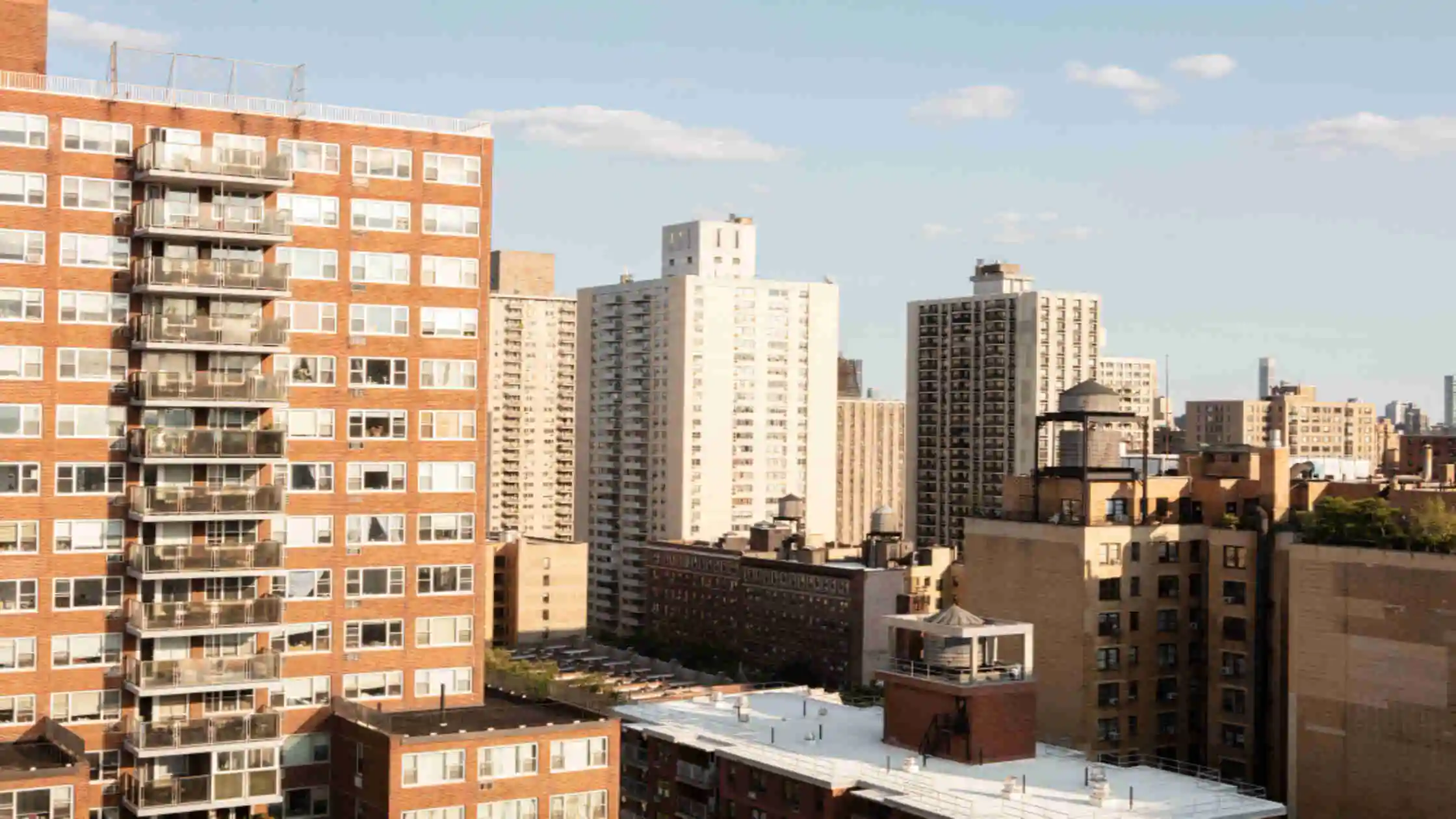Did you know that in Alabama, a squatter can legally take ownership of your property if they meet certain conditions? Without proper action, your home or land could be at risk. Understanding Alabama squatter rights, eviction steps, and legal loopholes is the first step in protecting your rights as a property owner. Let’s read on!
What Are Alabama Squatter Rights?
In Alabama, squatter rights refer to the legal allowances that enable individuals to occupy abandoned or unoccupied property without the owner's explicit permission. Over time, and under specific conditions, these individuals may gain legal ownership through a principle known as adverse possession.
If you’re a property owner, this is something you must take seriously. Ignoring squatters can lead to legal battles, lost property rights, and financial headaches, including potential costs like security deposits if the squatter was once a tenant. But don’t worry, we’ll break down exactly how Alabama law works and what you can do to protect your property.
Does Alabama Recognize Alabama Squatter Rights?
Yes, Alabama recognizes Alabama squatter rights under adverse possession laws. This means that if someone occupies a property long enough and meets specific legal conditions, they may be able to claim legal ownership.
However, squatters can’t just move in and take over your home overnight. They must prove continuous, open, and exclusive possession of the property for a certain number of years.
Difference Between a Squatter, Tenant, and Trespasser
It’s easy to mix up these terms, but legally, they mean very different things:
- Squatter – Someone who occupies a property without permission but may claim legal Alabama squatter rights over time. They are not renters and don’t have a lease.
- Tenant – A renter who has a legal agreement (lease) with the property owner and pays rent. Even if they stop paying rent, they must be legally evicted.
- Trespasser – Someone who illegally enters a property but does not intend to live there. Unlike squatters, trespassers usually don’t stay long. They can be removed by police immediately.
You can’t evict a squatter the same way you’d remove a trespasser or a tenant, so knowing the correct steps will save you time, stress, and legal trouble.
Recent Legislative Update: Alabama's Anti-Squatting Law of 2024

Alabama lawmakers recently passed new legislation in 2024 to crack down on squatting and make it easier for property owners to remove unauthorized occupants. This is a big win for landlords and homeowners who previously had to navigate long legal battles to reclaim their property.
The 2024 Anti-Alabama squatting laws introduced:
- Faster legal procedures for removing squatters
- Harsher penalties for fraudulent squatters trying to claim ownership
- Stronger protections for property owners against adverse possession in Alabama claims
If a squatter tries to claim Alabama squatter rights to your property, you now have stronger legal backing to remove them quickly. However, the exact legal process still depends on individual circumstances.
Adverse Possession in Alabama: Can a Squatter Legally Own Your Property?
Yes, under specific conditions, a squatter can claim ownership of a property in Alabama through adverse possession. But it’s not as simple as just moving in and waiting. It requires meeting very specific legal criteria.
What is Adverse Possession, and How Does it Work in Alabama?
Adverse possession is a legal doctrine that allows someone who occupies a property for an extended period without permission to eventually gain ownership rights.
The reasoning behind it?
The law favors active land use—meaning if a property is abandoned and someone else takes care of it for years, the law may reward them with ownership. For a squatter to claim adverse possession in Alabama, they must meet ALL of the following conditions.
Legal Criteria for Adverse Possession Under Alabama Code § 6-5-200
How to file for adverse possession in Alabama?
Under code of Alabama 6 5 200 adverse possession, a squatter must prove:
- Color of Title: The individual must have a deed or other document that appears to give them title to the property, recorded in the county's probate office for at least 10 years before any legal action.
- Payment of Taxes: The individual must have listed the property for taxation annually for 10 years prior to any legal action if the property is subject to taxation.
- Descent or Devise: The individual derives title through inheritance from a predecessor who was in possession of the land.
Squatting vs. Trespassing vs. Holdover Tenants in Alabama: What’s the Difference?
If someone is living on your property without your consent, does that automatically make them a squatter? Not necessarily. The law actually separates squatters, trespassers, and holdover tenants. Here’s how each one is defined in Alabama law:
Squatters
A squatter is someone who moves into and occupies a vacant or abandoned property without the owner’s permission. Unlike trespassers, squatters typically intend to stay long-term and may even try to claim ownership through adverse possession in Alabama.
- Lives on the property without a lease or consent from the owner
- May change the locks, receive mail, or set up utilities to establish residency
- Could claim legal Alabama squatter rights after 10 years of continuous possession (or 3 years with a legal claim known as "color of title")
Trespassers
A trespasser is someone who illegally enters a property but does not establish residency. Think of someone breaking into a home, camping on your land for a night, or using an abandoned building for temporary shelter.
- Has no intention of staying long-term
- Is on the property without permission and does not claim ownership
- Can be removed by police immediately since trespassing is a criminal offense
Holdover Tenants
A holdover tenant is someone who legally rents the property but refuses to leave after their lease expires. These individuals are different from squatters because they originally had the right to be there.
- Started as a legal tenant but overstayed their lease
- Can only be removed through formal eviction, not immediate police action
- May owe rent for the extra time they occupy the property
How to Get Rid of Squatters in Alabama: Step-by-Step Legal Process

Following the right process can remove squatters as quickly as possible and reclaim your property.
- Confirm they are squatters: Before taking legal action, determine whether the person is a squatter, trespasser, or holdover tenant. If they are actively breaking in or committing a crime, call the police immediately. Otherwise, you’ll need to go through the eviction process.
- Serve a formal eviction notice: Under Alabama law, squatters must be evicted like a tenant. This means serving them a written notice before filing a lawsuit. The most common notices include:
- 7-Day Notice to Quit (for unpaid rent if they were mistaken for a tenant)
- 10-day Notice to Vacate (for squatters without a lease)
- File a formal eviction notice to court: If the squatter refuses to leave, file a lawsuit with your local Alabama District Court. You’ll need to provide:
- Proof of property ownership
- A copy of the eviction notice
- Evidence that the squatter is living there illegally (e.g., security footage, witness statements)
- Attend the court hearing: A judge will review your case and issue an eviction order if you’ve followed the legal process correctly. The squatter will then have a deadline to leave—if they still refuse, the county sheriff can forcibly remove them.
- Reclaim your property: Once the squatter is gone, immediately change the locks, install security cameras, and check the property for damage. The last thing you want is for the squatter to come back and restart the legal battle!
Before taking legal action against a squatter, landlords must ensure they follow Alabama's landlord access laws to avoid potential legal complications. Understanding when and how landlords can legally access their property can help prevent disputes and strengthen eviction claims.
Squatter Rights in Birmingham, Alabama: A Growing Issue?
Birmingham has become one of the top cities in Alabama for squatter cases, with rising reports of vacant homes being taken over by unauthorized occupants. But why is this happening?
Why Birmingham Is a Squatter Hotspot
Several factors make Birmingham a prime target for squatters:
- High Number of Vacant Homes: Many abandoned or foreclosed properties sit empty for long periods, making them easy targets.
- Rising Housing Costs: As rent and home prices increase, more people turn to squatting as an alternative.
- Legal Loopholes: Alabama’s adverse possession laws allow squatters to claim ownership after 10 years, leading some to strategically occupy vacant homes.
- Slow Eviction Processes: Courts in Birmingham can be backlogged, causing delays in removing squatters legally.
How Local Laws Differ from Montgomery, Mobile, and Huntsville
Each major city in Alabama handles squatter cases slightly differently due to local ordinances and enforcement practices:
- Montgomery: Has stricter housing enforcement laws, allowing property owners to report squatting as a code violation, sometimes leading to faster removal.
- Mobile: Law enforcement prioritizes trespassing cases more aggressively, meaning squatters may be removed faster if caught early.
- Huntsville: A growing tech hub with higher property values, so squatters are less common due to stronger security measures in vacant properties.
While squatters can be removed legally anywhere in Alabama, Birmingham tends to have more squatter cases due to its unique housing challenges.
Squatters in Apartments: Do They Have Any Alabama Squatter Rights?

Yes, squatters can claim Alabama squatters’ rights in apartments, but only under very specific legal conditions.
How Do Squatters End Up in Apartments?
Squatters can illegally occupy rental units in several ways:
- Fake Lease Agreements: Some squatters forge rental agreements or use fraudulent paperwork to make it seem like they have permission to live there. This can delay the eviction process while courts verify whether the lease is real.
- Refusing to Leave After Lease Expiration: A tenant whose lease has ended but refuses to vacate becomes a holdover tenant. If they stop paying rent and ignore notices, they can be treated as a squatter.
- Unauthorized Subletting or Airbnb Guests Overstaying: Some tenants illegally sublease apartments or rent them out on short-term platforms like Airbnb. If a guest refuses to leave, it can turn into a legal battle to remove them.
What Rights Do Squatters Have in Alabama Apartments?
While squatters don’t have the same protections as legal tenants, they still have some Alabama squatter rights, and that’s what makes them difficult to remove.
- Squatters can’t be kicked out without an eviction process: Even if someone broke into your apartment unit and started living there, you can’t just remove them immediately. Alabama law treats them like a tenant once they’ve established residency, meaning you must file a formal eviction to get them out.
- Squatters can try to claim adverse possession in Alabama in apartments: If a squatter remains in an apartment for 10 years (under Alabama’s adverse possession laws), they could attempt to claim legal ownership. However, this is extremely rare in apartment cases because landlords usually take legal action long before squatters can establish long-term residency.
Is It Illegal to Move Into an Abandoned House in Alabama?
Yes, it is illegal to move into an abandoned house without permission in Alabama.
If you illegally occupy a property, it can be considered criminal trespassing. The property owner has the right to call the police and have you removed immediately, resulting in potential criminal charges. However, if you manage to stay in the abandoned house for a long period without being caught or challenged by the property owner, you could attempt to gain Alabama squatter rights.
These laws allow someone to claim ownership of a property after 10 years of continuous, uninterrupted possession, provided they meet specific requirements like paying property taxes and making improvements to the property. However, these cases are often difficult to prove, and the property owner typically has the legal right to evict the squatter through the formal eviction process before the squatters can claim ownership. If you're caught early, moving into an abandoned house can lead to legal consequences, including fines or arrest.
Summary
Squatting in Alabama, while frustrating, is something property owners can address with the right knowledge and legal approach. It’s important to know the difference between squatters, trespassers, and tenants and the steps involved in eviction under Alabama squatter rights. For a deeper understanding and additional resources, check out LeaseRunner’s articles for expert insights on squatter laws and eviction strategies in Alabama.
FAQs
Q1: Can a squatter be evicted in Alabama?
Yes, squatters can be evicted in Alabama, but it requires following the legal eviction process. You cannot simply remove them by changing the locks or cutting off utilities. First, you must serve them with a formal eviction notice and then file an eviction lawsuit in court if they don't leave. If the court rules in your favor, the sheriff will assist in removing the squatter.
Q2: Does Alabama have squatters' rights?
Yes, Alabama does have squatter rights under the adverse possession laws. A squatter can claim ownership of a property if they occupy it continuously for 10 years and meet other specific legal criteria, such as paying property taxes and making improvements. However, this is difficult to achieve, and property owners can take legal action to prevent squatters from establishing these rights.
Q3: What happens if I’m caught living in an abandoned house in Alabama?
If you’re caught living in an abandoned house without the owner’s permission, it is considered criminal trespassing, which can lead to arrest and fines. However, if you manage to live there long enough (and meet the criteria), you could potentially claim squatter rights under adverse possession in Alabama.


